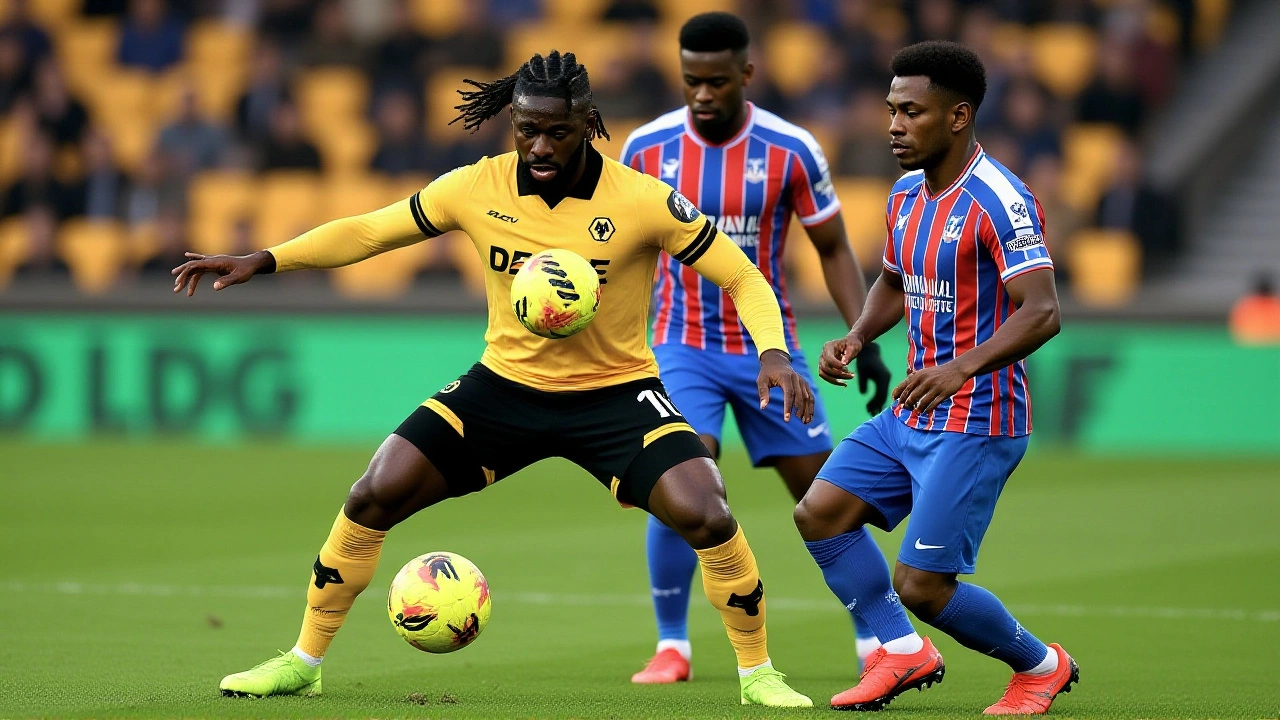When Wolverhampton Wanderers fell 0-2 to Crystal Palace at Molineux Stadium on November 22, 2025, it wasn’t just another loss in a long string of them. It was the first test for Rob Edwards, the 42-year-old Welsh manager who’d been handed the reins just three days earlier. And as the final whistle blew, Edwards didn’t flinch. He didn’t make excuses. He said it plainly: "It was never going to be a quick fix." With 27 games left in the 2025/26 Premier League season and Wolves rooted near the bottom, he knew the climb out would be brutal — but he also knew it had to start somewhere.
A manager with momentum, thrown into chaos
Edwards arrived at Wolves with momentum. Just months before, he’d led Middlesbrough to a perfect start in the 2025/26 season — four wins from four games. But his first week at Molineux was anything but smooth. International duty scattered his squad. He didn’t have all his players together until Friday, November 19. That left him just three days to install his philosophy, assess talent, and prepare for a high-stakes Premier League clash. No time for tactical drills to sink in. No time for trust to build. Just a press conference, a training pitch, and a packed, anxious crowd. "We’ve been trying to get our messages across with as much clarity as possible," Edwards said in his first interview with the squad. "But you can’t coach chemistry in a weekend. You’ve got to earn it. And that starts with showing up — every day, every tackle, every sprint back."The match: A mirror of the season
Crystal Palace, under Oliver Glasner, were clinical. Edwards called them "one of the most organised and efficient teams in the league" — and he wasn’t wrong. Wolves pressed, but not with cohesion. They passed, but not with purpose. The first goal? A loose giveaway in midfield, a miscommunication between two young defenders, and a brilliant finish from Palace’s counter. The second? A moment of individual brilliance that exposed Wolves’ lack of defensive discipline. "It’s almost a non-chance," Edwards admitted. "But that’s what happens when you’re not locked in." The second half offered a glimmer. Wolves looked more dangerous. One shot hit the post. A cross nearly found the head of a charging Adama Traoré. But the moment never came. And when it didn’t, the silence at Molineux wasn’t just disappointment — it was exhaustion. Fans have waited too long for this to change."Reset" isn’t a slogan — it’s a promise
Edwards didn’t come to Wolves for a quick job. He came for a reset. He told owner Jeff Shi as much during their initial meeting. "We talked about that word — reset," Edwards said. "This isn’t about patching up a broken team. It’s about rebuilding a culture." That culture, he insists, starts with two things: accountability and effort. "If we don’t sprint back, if we don’t win duals, if we don’t block crosses — then we’re not even in the game," he told reporters. "It’s not about fancy passes. It’s about doing the ugly stuff better than anyone else." He’s already holding individual meetings with every player. He’s watching training footage late into the night. He’s studying not just tactics, but psychology — who’s lost confidence, who’s still fighting, who needs a word, who needs space. "We want clarity," he said. "But clarity doesn’t come from a whiteboard. It comes from trust. And trust comes from showing up, day after day."
The road ahead: Villa, then the fight
The next test comes on November 29, 2025, when Aston Villa FC visits Molineux. For the first time since his appointment, Edwards will have a full week — no international absences, no rushed prep. "We’ll get another full week at it," he said. "And I expect to see improvements. Not because I said so — because we’ve earned them." The numbers are grim. Wolves have won just one of their last 12 league games. They’re five points from safety. No team in Premier League history has avoided relegation after being this deep in the drop zone with 27 games left. But Edwards isn’t looking at history. He’s looking at his players. "No one’s got a magic wand," he said. "So we’ve got to be the ones who dig deeper. Every day. Every tackle. Every minute."Why this matters beyond Wolves
This isn’t just about one club trying to avoid relegation. It’s about what happens when a manager inherits a team in freefall — no time, no resources, no easy wins. Edwards’ approach is a blueprint for how to lead under pressure: honesty over hype, effort over elegance, patience over panic. His words aren’t just for Wolves fans. They’re for every supporter watching their team spiral — a reminder that rebuilding isn’t glamorous. It’s grinding. It’s messy. And sometimes, it starts with a 0-2 loss.
What’s next? The real test begins
The next 30 days will define Edwards’ tenure. Can he turn defensive errors into structured units? Can he ignite a squad that’s lost belief? Can he make Molineux feel like a fortress again — not just a place where teams come to score? His next move? More meetings. More film. More early mornings. More late nights. And one simple message: "If you’re not giving everything, you’re not part of this."Frequently Asked Questions
How bad is Wolves’ relegation threat really?
Wolves are in 19th place in the 20-team Premier League with just one win in their last 12 matches. They sit five points from safety, and historically, no team has avoided relegation after being this deep in the drop zone with 27 games remaining. The last time a team came back from such a deficit was West Brom in 2005 — and even then, they needed a 90th-minute winner on the final day. The odds are stacked, but not impossible.
Why did Edwards take the job if the situation is so dire?
Edwards has a track record of turning around struggling clubs — his four-game winning streak with Middlesbrough at the start of the 2025/26 season proved he can instill discipline and belief quickly. He also has a direct relationship with owner Jeff Shi, who offered him a long-term vision. For Edwards, this isn’t a job — it’s a mission. He sees Wolves as a club with infrastructure, fan support, and talent — just lacking direction. He’s betting on himself to restore it.
What tactical changes can fans expect under Edwards?
Edwards favors a high-pressing 4-2-3-1 system with aggressive full-backs and intense midfield transitions. He demands relentless defensive organization — blocking crosses, winning duals, and sprinting back after every attack. He’s already cut back on possession drills in favor of high-intensity recovery runs and set-piece repetition. The goal isn’t pretty football — it’s survival football.
How are the players responding to Edwards?
Early reports suggest players are responding positively to his direct, no-nonsense approach. Several veterans have praised his clarity and willingness to listen. One source close to the squad said, "He doesn’t sugarcoat anything — but he also doesn’t blame. He says, ‘We’re in this together.’" That’s a shift from the previous regime, where blame was often public and blame-shifting was common. Trust is slowly being rebuilt — one training session at a time.
Is there any chance of January transfer activity helping?
Yes — but with limits. Wolves’ ownership has signaled they’ll support Edwards in January, but only if he identifies specific, affordable targets who fit his system. They’re not looking for big-name signings. Instead, they’re targeting defensive midfielders, physical center-backs, and experienced wingers who’ve played in relegation battles before. Names like Joe Willock and Sam Johnstone have been mentioned, but nothing’s confirmed. The focus is on fit, not fame.
What’s the biggest obstacle to survival?
The biggest obstacle isn’t talent — it’s confidence. Wolves’ players have lost belief in their ability to win. Edwards knows that. His job now isn’t just to coach tactics — it’s to rebuild identity. That means celebrating small wins: a clean sheet, a hard tackle, a recovery run. He’s already started handing out "Effort Awards" after training. It’s not about results yet. It’s about proving to the players — and the fans — that they’re still capable of fighting.



